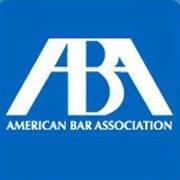COLORADO DRUNK DRIVING LAWS
A Publication of the Office of Legislative Legal Services provides you with Colorado Drunk Driving Laws. Colorado law prohibits a person from driving a vehicle while under the influence of alcohol or drugs or while the person’s ability to drive is impaired by alcohol or drugs. These offenses are often abbreviated as “DUI” and “DWAI”, respectively.
Blood Or Breath Tests
Blood or breath tests play a prominent role in the enforcement of drunk driving laws, although DUI or DWAI can be proved by other means. First a person is presumed to be DWAI if the test shows a blood alcohol level of more than 0.05 but less than 0.08. Second a person is presumed to be DUI if the test shows a blood alcohol level of at least 0.08 or greater. In addition a person may be classified as a persistent drunk driver and subject to greater penalties if the test shows a blood alcohol level of at least 0.17.
Under the principle of expressed consent, the law presumes that every driver has consented to take a blood, breath, saliva, or urine test when requested to do so by a law enforcement officer who has probable cause to believe that the person is DUI or DWAI. Refusal to take the test is both admissible in court and a basis for revocation of a driver’s license.
Criminal Penalties
There are both criminal penalties (fines, imprisonment, and required public service) and administrative penalties for drunk driving. Courts impose criminal penalties, while the Colorado Department of Revenue (the Department) imposes the administrative penalties. Administrative penalties include the suspension or revocation of a license due to the commission of certain offenses or the accumulation of sufficient points assessed for violations.
Sometimes a driver may reduce his or her criminal penalties through a plea bargain in court or by undergoing alcohol or drug treatment, but he or she must still face administrative penalties assessed by the Department. In most cases the Department does not have the authority to reduce or bargain away these penalties.
Summary Of Information
1. This summary contains information commonly requested from the Office of Legislative Legal Services (OLLS). It does not represent an official legal position of the General Assembly or the State of Colorado and does not bind the members of the General Assembly. It is intended to provide a general overview of Colorado law as of the date of its preparation. Any person needing legal advice should consult his or her own lawyer and should not rely on the information in this memorandum.
2. “Driving under the influence” means driving a vehicle when a person has consumed alcohol or one or more drugs, or a combination of alcohol and one or more drugs, which affects the person to a degree that he or she is substantially incapable, mentally or physically, to exercise clear judgment, sufficient physical control, or due care in the safe operation of a vehicle. Section 42-4-1301(1) (f), Colorado Revised Statutes (C.R.S.). “Driving while ability impaired” is similar, except that the person is affected to the slightest degree so that the person is less able than he or she ordinarily would have been to exercise clear judgment, etc. Section 42-4-1301(1) (g), C.R.S.
3. Blood alcohol level is expressed in grams of alcohol per 100 milliliters of blood or grams of alcohol per 210 liters of breath.
4. Section 42-4-1301.1, C.R.S.
S:\PUBLIC\LLS\MEMOS\Law Summaries\COLORADO DRUNK DRIVING LAWS.wpd Revised: August 11, 2009
Administrative Penalties
Administrative and criminal penalties for driving under the influence 5 as they appear in sections 42-4-1301, 42-2-125, 42-2-126, and 42-2-127, Colorado Revised Statutes:
| ADMINISTRATIVE PENALTIES | ||
| Violation | License Suspension | Points |
| BAC test of at least 0.08 | 9 months | |
| 2nd BAC test of at least 0.08 | 1 year | |
| 3rd or subsequent BAC test of at least 0.08 | 2 years | |
| DWAI | None | 8 points |
| 1st DUI | 9 months | 12 points |
| 2nd DUI or DWAI / Within 5 years | 12 months | DWAI 8 points DUI 12 points |
| 3rd DUI or DWAI / In a Life Time | 24 months | DWAI 8 points DUI 12 points |
| 1st Under 21 drinking and driving (BAC of at least 0.02 but less than 0.05) | 3 months – 1st offense 6 months – 2nd offense 1 year – 3rd or subsequent offense | 4 points |
Criminal Penalties
| CRIMINAL PENALTIES | |||
| Offense | Jail | Fine | Public Service |
| 1st DWAI | 2 days – 180 days | $200-$500 | 24 hrs – 48 hrs |
| 2nd DWAI | 45 days – 1 year (5 days Mandatory) | $600-$1000 | 48 hrs – 96 hrs |
| DWAI with previous DUI | 60 days – 1 year (6 days Mandatory) | $800-$1200 | 52 hrs – 104 hrs |
| 1st DUI | 5 days – 1 year | $600-$1000 | 48 hrs – 96 hrs |
5. Administrative penalties for the same incident are not consecutive. For example, if a person whose license was suspended for a BAC test of at least 0.08 is subsequently convicted of DUI arising out of the same incident, the person’s license is only suspended once.
S:\PUBLIC\LLS\MEMOS\Law Summaries\COLORADO DRUNK DRIVING LAWS.wpd Revised: August 11, 2009
| CRIMINAL PENALTIES | |||
| Offense | Jail | Fine | Public Service |
| 2nd DUI | 90 days – 1 year (10 days Mandatory) | $1000-$1500 | 60 hrs – 120 hrs |
| DUI with previous DWAI | 70 days – 1 year (7 days Mandatory) | $900-$1500 | 56 hrs – 112 hrs |
| 1st Under 21 drinking and driving (BAC or at least 0.02 but less than 0.05) | None | $100 | Up to 24 hrs |
In some cases, a portion of the minimum mandatory jail sentence can be suspended if the person agrees to undergo an alcohol treatment program.
Court Costs And Surcharges
In addition, persons who violate the state’s drunk driving laws may have to pay court costs, penalty surcharges of up to $500 to help pay for programs to address persistent drunk drivers, surcharges to benefit the crime victim compensation fund, fees to reinstate a driver’s license after suspension or revocation, and other fees, charges, and penalties.
Still other consequences may follow. If alcohol or drugs are involved in an accident causing injury or death, the penalties for vehicular assault or vehicular homicide are more stringent. Persons convicted of a third DUI or DWAI offense within 7 years also face a mandatory 5-year license revocation under the “habitual traffic offender” statute.
This summary does not include all the details contained in state law and regulations. For more information, contact your local Driver License Office or visit a public library and ask for volume 11, sections 42-2-125 to 42-2-208 (point system and revocation procedures) and 42-4-1301 (criminal offenses and procedures) of the Colorado Revised Statutes.
S:\PUBLIC\LLS\MEMOS\Law Summaries\COLORADO DRUNK DRIVING LAWS.wpd Revised: August 11, 2009
Shipp Law Colorado DUI Attorneys
Shipp Law Colorado DUI Attorneys Dan Shipp and Clay Shipp are a strong father son team with 35+ years of trial experience. 95 % of their cases are related to alcohol and marijuana driving defense. Our clients include national and international visitors to our local ski resorts as well as residents of Colorado. We represent our clients throughout Colorado in all county and district courts. Call us for a free consultation 970-927-2255.

National Institute For
Trial Advocacy Graduate




